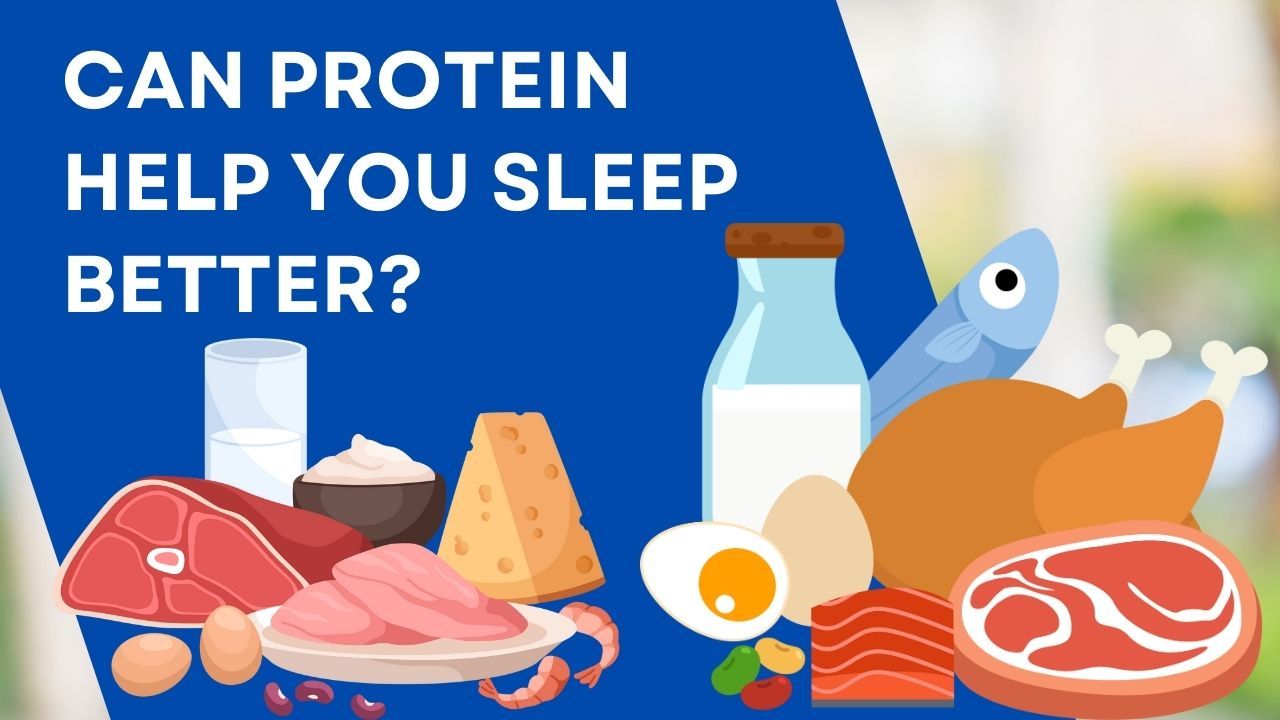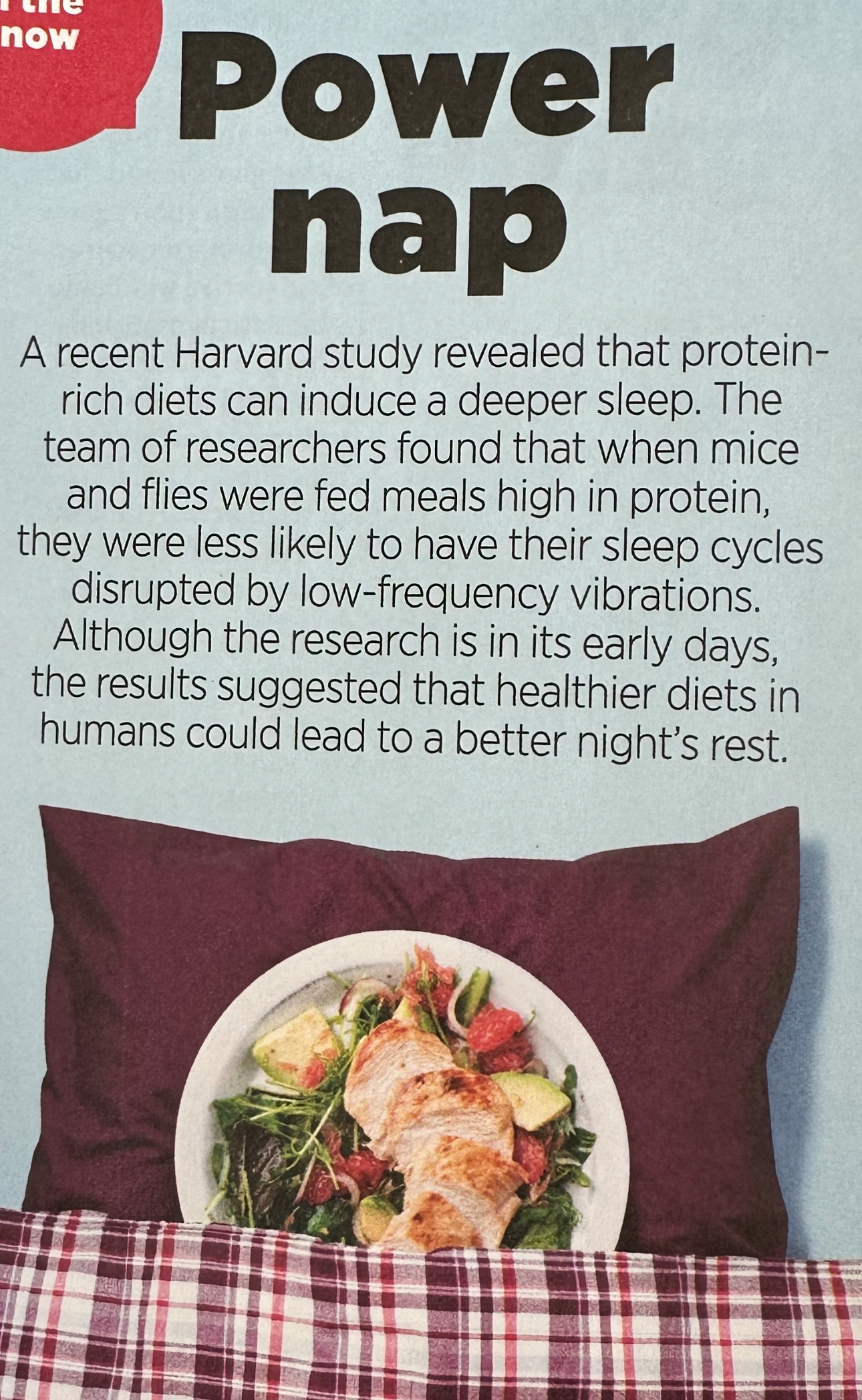Does Eating Protein Help You Sleep
May 01, 2025
CAN PROTEIN HELP YOU SLEEP???
I saw this article in a magazine yesterday and so decided to investigate if there is evidence that increasing protein helps with sleep.

I found that there is some evidence supporting slightly better sleep.
This might be because protein-rich foods contain amino acids, including tryptophan — a precursor to serotonin and melatonin, two key neurotransmitters involved in regulating sleep and mood. Consuming adequate protein can support your body’s ability to produce these chemicals, potentially helping you fall asleep faster and stay asleep longer.
Some studies have shown that diets higher in protein are linked to:
-
Improved sleep quality
-
Fewer night-time awakenings
-
Increased time spent in deep sleep
A 2016 study published in the American Journal of Clinical Nutrition found that adults who consumed more dietary protein reported better sleep after four weeks compared to those who ate less protein.
How Much Is Enough?
While protein is essential, more isn't always better — especially before bed. A light, protein-rich snack (like Greek yogurt, a boiled egg, or a small turkey sandwich) in the evening may be helpful. However, heavy or large protein meals right before sleep can lead to digestive discomfort and actually disrupt sleep.
Limitations and What to Watch For
-
Timing matters: Aim to eat protein 1–3 hours before bed, not immediately before lying down.
-
Balance is key: Overemphasising protein without enough carbs can interfere with tryptophan uptake into the brain. Carbs help tryptophan cross the blood-brain barrier, so a balanced snack is ideal.
-
Individual responses vary: Some people find high-protein intake energizing, especially if they’re not used to it. It’s worth experimenting gently and tracking your response.
Final Thoughts
While protein isn’t a magic bullet for insomnia, it’s a valuable part of a holistic approach to better sleep. Including moderate amounts of protein throughout the day — especially in the evening — may improve your sleep quality by supporting the natural production of sleep-related hormones.
As always, what works best varies by individual, so it’s worth testing and adjusting based on your own experience.



